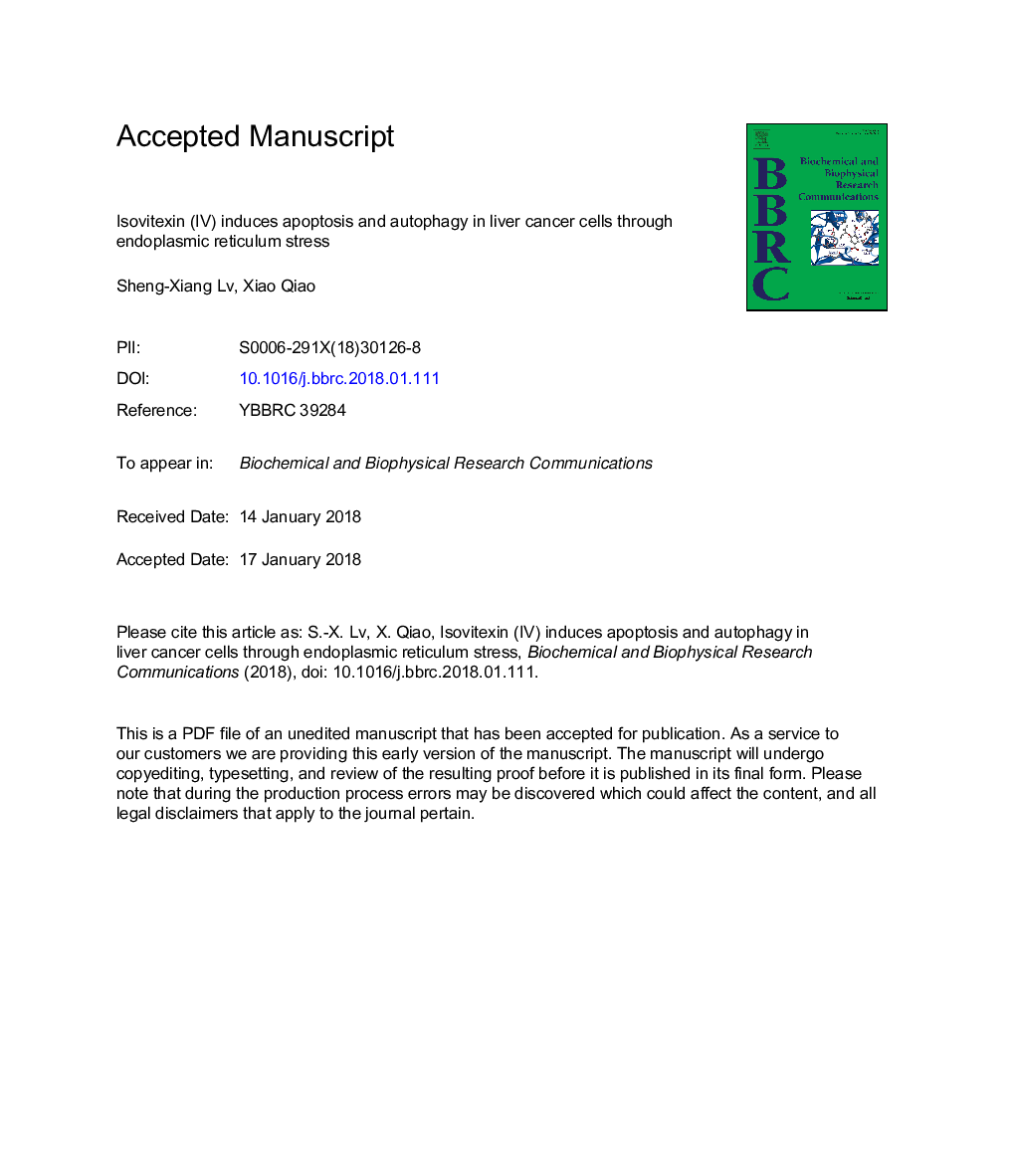| کد مقاله | کد نشریه | سال انتشار | مقاله انگلیسی | نسخه تمام متن |
|---|---|---|---|---|
| 8294380 | 1536752 | 2018 | 20 صفحه PDF | دانلود رایگان |
عنوان انگلیسی مقاله ISI
Isovitexin (IV) induces apoptosis and autophagy in liver cancer cells through endoplasmic reticulum stress
دانلود مقاله + سفارش ترجمه
دانلود مقاله ISI انگلیسی
رایگان برای ایرانیان
کلمات کلیدی
موضوعات مرتبط
علوم زیستی و بیوفناوری
بیوشیمی، ژنتیک و زیست شناسی مولکولی
زیست شیمی
پیش نمایش صفحه اول مقاله

چکیده انگلیسی
Liver cancer is a leading cause of cancer death worldwide, and novel chemotherapeutic drugs to suppress liver cancer are urgently required. Isovitexin (IV), a glycosylflavonoid, is extracted from rice hulls of Oryza sativa, and has various biological activities. However, the anti-tumor effect of IV against liver cancer has not yet been demonstrated in vitro or in vivo. In the present study, we showed that IV significantly suppressed the growth of liver cancer cells. Mechanistic studies indicated that IV induced apoptosis by the mitochondrial apoptotic pathway, as evidenced by the increase of Bax, cleaved Caspase-3, poly (ADP-ribose) polymerase (PARP), and cytoplasm Cyto-c released from mitochondria. In addition, IV resulted in autophagy in liver cancer cells, supported by the enhancement of LC3II, autophagy-related protein (Atg) 3, Atg5 and Beclin1. Suppressing autophagy using bafilomycin A1 (BFA) or siRNA Atg-5 reduced apoptotic cells in IV-treated cells, demonstrating that autophagy induction regulated apoptosis. Moreover, IV was found to cause endoplasmic reticulum (ER) stress in liver cancer cells, along with the promotion of ER stress-related molecules, including inositol-requiring enzyme 1α (IRE1α), X-box-binding protein-1s (XBP-1s), C/EBP homologous protein (CHOP) and glucose-regulated protein (GRP)-78. Of note, inhibition of ER stress by use of its inhibitor, tauroursodeoxycholate (TUDCA), significantly reversed IV-induced apoptosis and autophagy. In vivo, IV treatment showed significant tumor growth inhibition compared to the non-treated group. IV could therefore be a strong candidate for liver cancer prevention.
ناشر
Database: Elsevier - ScienceDirect (ساینس دایرکت)
Journal: Biochemical and Biophysical Research Communications - Volume 496, Issue 4, 19 February 2018, Pages 1047-1054
Journal: Biochemical and Biophysical Research Communications - Volume 496, Issue 4, 19 February 2018, Pages 1047-1054
نویسندگان
Sheng-Xiang Lv, Xiao Qiao,